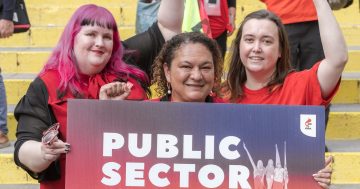Melanie Burgess* says the pandemic has affected many older workers, with unemployment, under-employment and reduced superannuation forcing them to postpone retirement and consider an ‘encore career’.
 The COVID-19 pandemic has affected many older workers, with issues from unemployment and under-employment through to reduced superannuation requiring them to postpone retirement.
The COVID-19 pandemic has affected many older workers, with issues from unemployment and under-employment through to reduced superannuation requiring them to postpone retirement.
It has many workers rethinking their futures and whether they can or want to stay in their current career.
Workers hoping to transition into an ‘encore career’ rather than move straight to retirement are urged to start their plans well before the time arrives.
The head of Organisational Psychology Consulting at Stillwell Management Consultants, Alexandra Rosser recommends workers start to seriously consider the topic at about age 50, so they can move about age 55.
“It’s probably [a good idea] five years out from when you think you want to retire from your current career,” she says.
“If you are not as interested in your work or able to maintain the same pace, that might be early signals you need to start anticipating that next phase.
“That transition is always easier if you have groomed a successor for your role and opportunities are presenting naturally and organically … but if that is not happening, it needs to be a more deliberate process.
“Get serious about doing that while you still have the stability of your current role.”
Rosser says an encore career can be used to engage in work with greater social impact; fulfil a burning passion a worker has always had but been unable to pursue earlier, or leverage a strength that has been unearthed during an earlier career.
It can form a bridge to retirement.
“They might not be ready to stop working altogether but, for example, they might not want leadership responsibilities or might want fewer hours,” she says.
“There are health benefits of continuing to use the brain and engage in social relationships and activities and have a sense of purpose and meaning.”
The Australian Bureau of Statistics shows the most common careers of men aged 55 to 64 are specialist managers, road and rail drivers or automotive and engineering trades workers.
Women are most likely to be carers and aides, health professionals or educational professionals.
Chief Executive of Absolute Care & Health, Barbara Ould says mature workers can fit really well into a care-giving role.
“Life experience, raising a family and previous careers all create a great base for a role in which knowing how to relate to and engage with other people is so important,” she says.
“At this stage in their lives, many people also want to reduce the hours they work.
“In-home care jobs are often casual which means that employees have a lot more control over their hours than many permanent roles.
“For those who might be feeling that they’ve had enough of the corporate office job, or that they’d like to do something that has more meaning to them, a role as a carer or support worker can be incredibly rewarding.”
*Melanie Burgess writes careers, employment and workplace news for the News Corp Australia Network in print and online. She tweets @MelanieBurgess.
This article first appeared at news.com.











